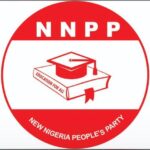
Ojay Aito is author of ‘Night of a Red Moon’, a novel inspired by an actual event when a student was killed at Olabisi Onabanjo University in Ago-Iwoye, Ogun State. Here, he talks about why he wrote the novel, insecurity in Nigeria, how he started writing, and more.
Bookshelf: Your debut novel, ‘Night of a Red Moon’ reads like an actual event. Why did you decide to write the story?
Ojay Aito: First, it was therapeutic for me to write about that day when a student was killed at Olabisi Onabanjo University in Ago-Iwoye, Ogun State. On June 16, 2005, the students, led by the Students Union Government, went on a peaceful protest that spiralled out of control. The king’s palace was razed by fire, and the consequences were almost immediate on the students who lived in the town.
I also wanted to tell the story of hundreds, perhaps thousands, of young people who experienced that gory night, and who have sought for a voice all this while. I see myself as just a tool, a voice for all of them. I’m privileged to do this on behalf of those who lived after that night, and those who unfortunately didn’t make it out.
Bookshelf: What did it take to make the work fiction, although influenced by an actual event?
Aito: I didn’t see the entire picture when I began to write. But the memories of that night kept my fingers moving. And soon enough, I knew that I wasn’t going to just report the story like another news story that would soon be forgotten. At a point I allowed the characters lead me to what I needed to write. I was able to paint many pictures, partly of what I experienced, what other people experienced, and what I heard after we returned to the community months later. Many students didn’t return. Some we never heard of again.
Bookshelf: How were you able to develop your characters?
Aito: It took a while. I wasn’t in a rush. A few, I had thought of, before I started writing. Others just simply appeared in the scenes. Like I said, at some point, I simply allowed the characters to lead me. There were four main characters that the story was hinged on at the beginning, but as the story progressed, attention shifted to other characters who later became even more important than the previous four.
Bookshelf: It all started when Femi, a student was killed by members of the Oodua People’s Congress. From then the chaos began. What do you hope to achieve with the work?
Aito: First of all, it’s a novel, a work of fiction based partly on a true event. Secondly, there are a number of themes which the book highlighted. One is the insecurity challenge that we have in our country, and how easy it is for evil to creep into organizations that were intended for good purposes. Also, how security agencies have been abused right from inception. The story tries to bring to the open the issue of ‘bandwagon’ effect, which in itself is some form of security and information challenge. Many people don’t know and never get to know the real reason why they are called to participate in protests, whether peaceful or not. As long as they find someone who they admire doing it, they go into it, and unfortunately carry others along
People who would desire power by any means will simply have these ones as tools to machinate their evil intentions. So I hope this book serves a reminder for what we already know, and talk about in our country as regards security, state policing, protests, and so on.
Bookshelf: Talking about protests, there was a protest, before president Muhammadu Buhari returned, that he should return or resign. What do you make of that?
Aito: I think to protest is everyone’s right. Just like freedom of speech. Whether they have the right intentions, or are ill-advised, is another thing. It is very okay for people to be frustrated, and the fact that there is even a chance to air ones views is good news. The frustration shows that people truly want change, but it is now more obvious than anything that change can’t be immediate, and change in itself is a ‘scalar entity’, that is it says nothing of factors like direction, time, speed, and through whom it will happen. The realisation of these is what has caused the frustration. Unfortunately, we are a nation diagnosed with ‘selective amnesia’. We chose what we want to remember, and what we want to forget. Most protests we have seen so far, have done little or nothing in the furtherance of our democracy. Remember Occupy Nigeria?
Bookshelf: How did you start writing, generally?
Aito: I think it’s a family thing. My dad writes a lot. He was an academic. While growing up, we always had to write essays, articles, and stories bothering on diverse issue my dad would conjure. He made us write every day.
After I was done with secondary school, he stopped marking my essays, but by then I could no longer stop writing. I had books, diaries and all sorts of writing pads that carried most of my growing-up thoughts. I wrote anywhere I could find a plain surface. And my imagination became broader. I wasn’t exactly an introvert, but I preferred to write more than talk. It made me feel ‘all-knowing’, especially when I began to write short stories, knowing how I could choose to exalt a character and bring down another…
As the years went by, my writing got better, I understood that most times some characters just want to be rebellious, have a mind of their own, apart from what I wanted for them. And that’s okay.
Bookshelf: Some writers believe that the short story is the way to go before one writes a full length novel. What do you have to say about that?
Aito: There are no rules. And if there are, I’m glad I didn’t know about them, by the way, I blogged weekly fiction series for a while before now. It is also true that there is hardly any novel debutant who hasn’t first tried out on a number of short stories, whether they got popular for it or not.
Bookshelf: What writers and books influenced you the most and why?
Aito: Earliest influences were my dad’s collection: Colleen McCullough’s ‘Thorn Bird’, Thomas Hardy’s ‘Tess of the d’Urbervilles’, and even J.K. Randle’s ‘Who Is Fooling Who’. Also, ‘A Matter of Honour’, ‘Cain and Abel’, and ‘As the Crow Flies’, all by Jeffrey Archer are also some of my early reads. My dad had a few of Cyprian Ekwensi’s works, and Obafemi Awolowo’s collection, which I also found interesting. Unfortunately I can’t say which one of these authors had the most influence on me, and why, but these were a few of the books I was exposed to, growing up. I believe they helped form my knowledge base, and opened my young mind to wander by itself, without restraint. I still read wide and have an eclectic array of books. What writer is there that doesn’t read?
Bookshelf: What are you working on at the moment?
Aito: I’m in the fourth draft of my next novel. It still needs some straightening out before I send to my editor, and then begin another round of rewriting and smoothening. It is futuristic science fiction and has one major character unlike ‘Night of a Red Moon’. By this time next year, hopefully it should be released. I have about five different manuscripts already drafted, waiting in line for a publisher, so I am here on a long term basis.

 Join Daily Trust WhatsApp Community For Quick Access To News and Happenings Around You.
Join Daily Trust WhatsApp Community For Quick Access To News and Happenings Around You.


